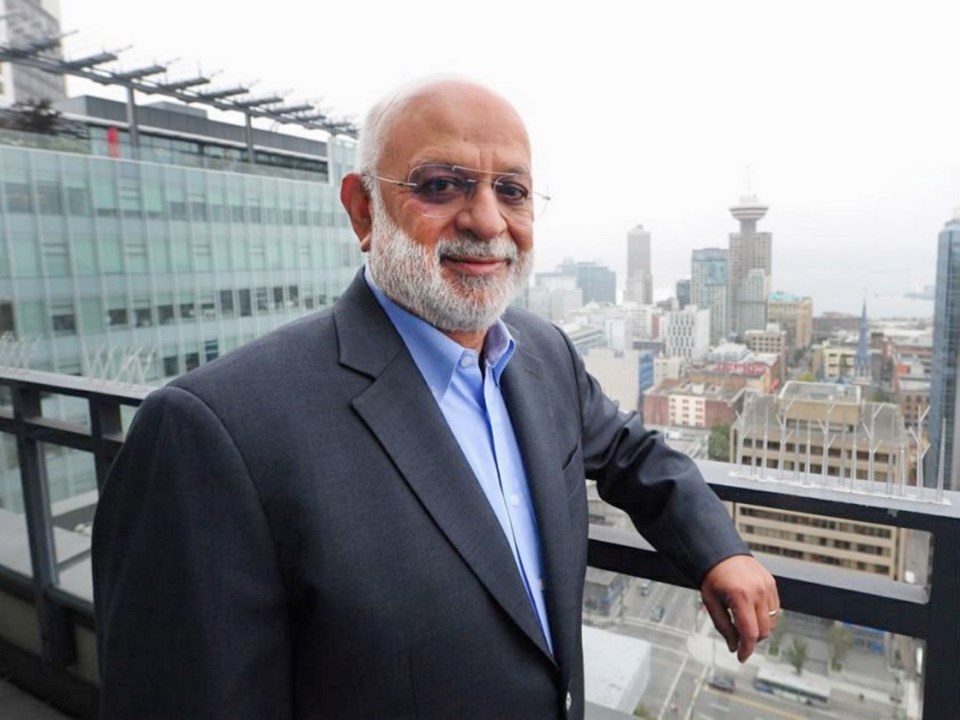The $1.1 million award is one of the largest in Canadian legal history, and illustrates the court's attitude toward libel in the "Wild West of the internet," the plaintiff's lawyer said.
A seven-year court battle between a Vancouver businessman and an American CEO reached its end this month, as the Supreme Court of Canada declined to hear an appeal on the case involving one of the largest defamation awards in Canadian history.
The plaintiff, Vancouver’s Altaf Nazerali, said this week that the latest development “puts a definitive end to my legal ordeal.”
“I have closure finally and I can move on with my life,” Nazerali said. “It’s a vindication for … putting down fake news and fighting it. It came at a tremendous cost, but it feels great, because as I understand it, my case has now become a reference for similar defamation cases in Canada and elsewhere.”
Nazerali was awarded $1.1 million in a B.C. Supreme Court judgment in May 2016, but it wasn’t until this month that the defendants, including Patrick Byrne, CEO of Utah-based online retailer Overstock.com, exhausted their final avenue to fight Nazerali’s suit, as the Supreme Court of Canada denied their appeal.
Nazerali filed the lawsuit in 2011, after discovering he was the subject of defamatory articles published on DeepCapture.com, a website published by Byrne. The stories on Deep Capture falsely portrayed Nazerali as an arms dealer, drug trafficker, al-Qaida financier, and a member of the Italian and Russian mafias.
This marks the largest ever defamation award in B.C. and one of the largest in Canadian legal history, said Nazerali’s lawyer, Daniel Burnett, a nationally recognized leader in defamation and media law.
“It might be the longest (defamation case) I’ve encountered,” Burnett said. “This one has been quite a battle right from the get-go.”
“It’s kind of telling of the era. Traditionally, libel suits, at least the most noteworthy ones, tend to be against traditional media outlets and journalists, none of whom would behave like these defendants behaved,” Burnett said. “This is kind of the Wild West of the internet … What it illustrates, I think, is the judge saying: ‘Now we’re into this era where people can do really serious harm to somebody’s reputation on the internet if they decide to use it as a weapon. And I’m going to call them on it and I’m going to hit them hard.’”
In the 2016 decision, B.C. Supreme Court Justice Kenneth Affleck found the defendants — publisher Byrne, Deep Capture LLC, and article author Mark Mitchell — had “engaged in a calculated and ruthless campaign to inflict as much damage on Mr. Nazerali’s reputation as they could achieve. It is clear on the evidence that their intention was to conduct a vendetta in which the truth about Mr. Nazerali himself was of no consequence.”
Byrne and the defendants appealed that decision, and in March of this year, a panel of B.C. Court of Appeal judges unanimously dismissed their appeal, although the court reduced the award for aggravated damages by $300,000. The B.C. Court of Appeal upheld the award of special costs against the defendants, which are awarded in cases of “reprehensible” conduct, which amounted to $200,000, bringing Nazerali’s total award to around $1.1 million plus interest.
Following their rejection at the B.C. Court of Appeal, Byrne and the defendants sought leave to appeal at the Supreme Court of Canada, which released its decision on Aug. 9 refusing to hear the appeal.
As is typical in such applications, the Supreme Court of Canada did not release any reasons for rejecting the case.
Byrne’s lawyer Roger McConchie said Thursday: “There were issues that we had hoped would be argued at the Supreme Court of Canada level, and the refusal of leave simply means they won’t be.”
Byrne did not reply to a request, sent through his lawyer, to provide a comment or answer why he did not testify or call any evidence during the 2016 trial.



